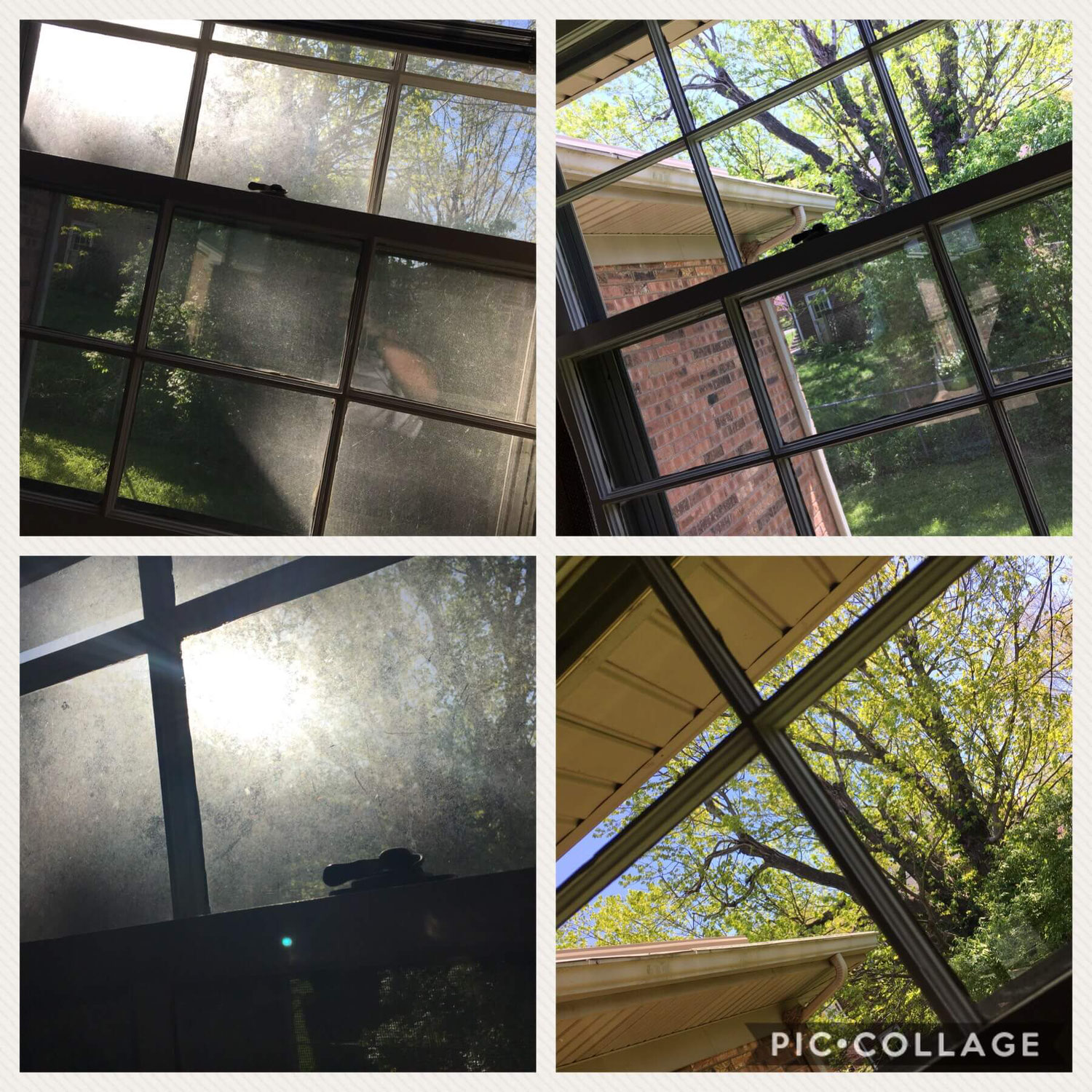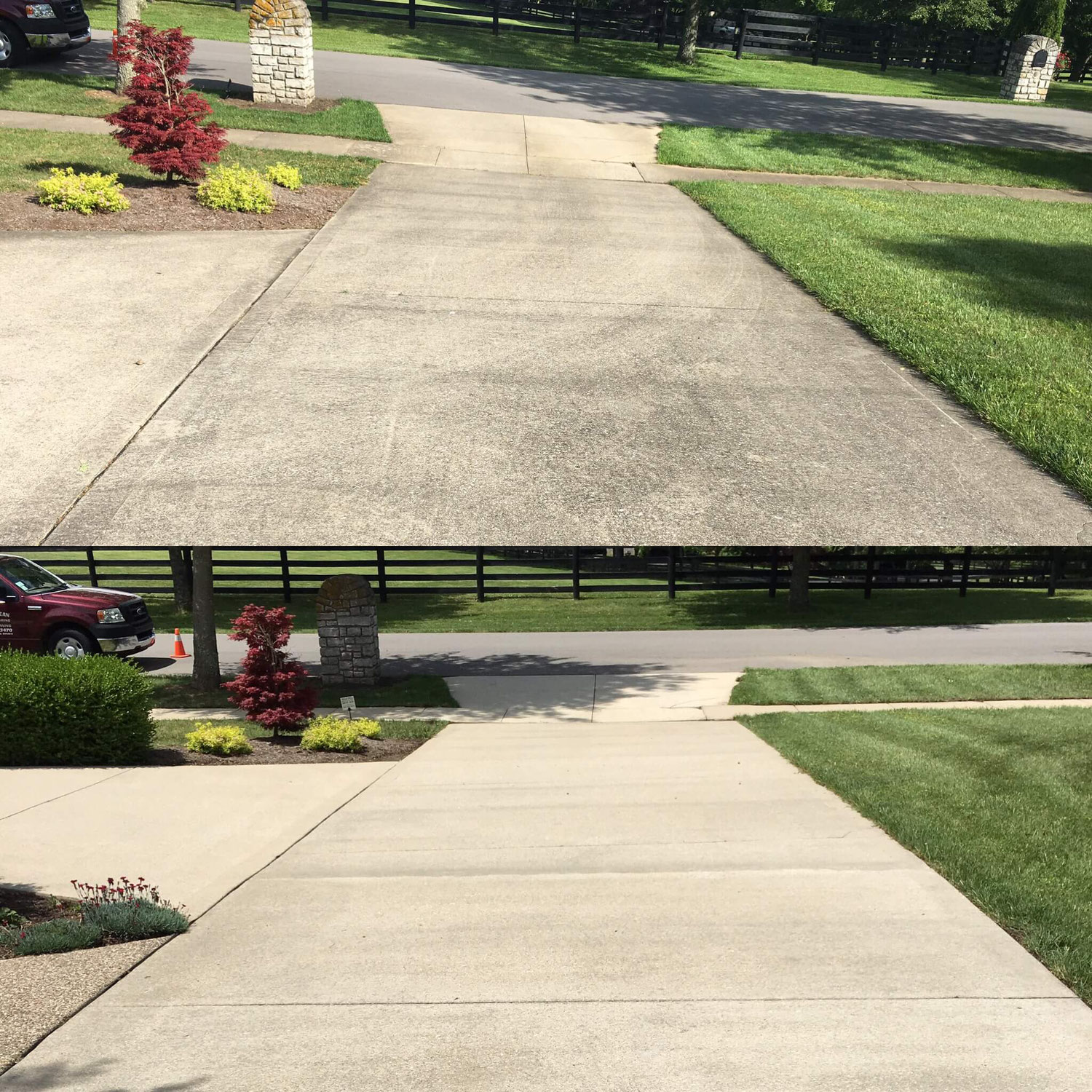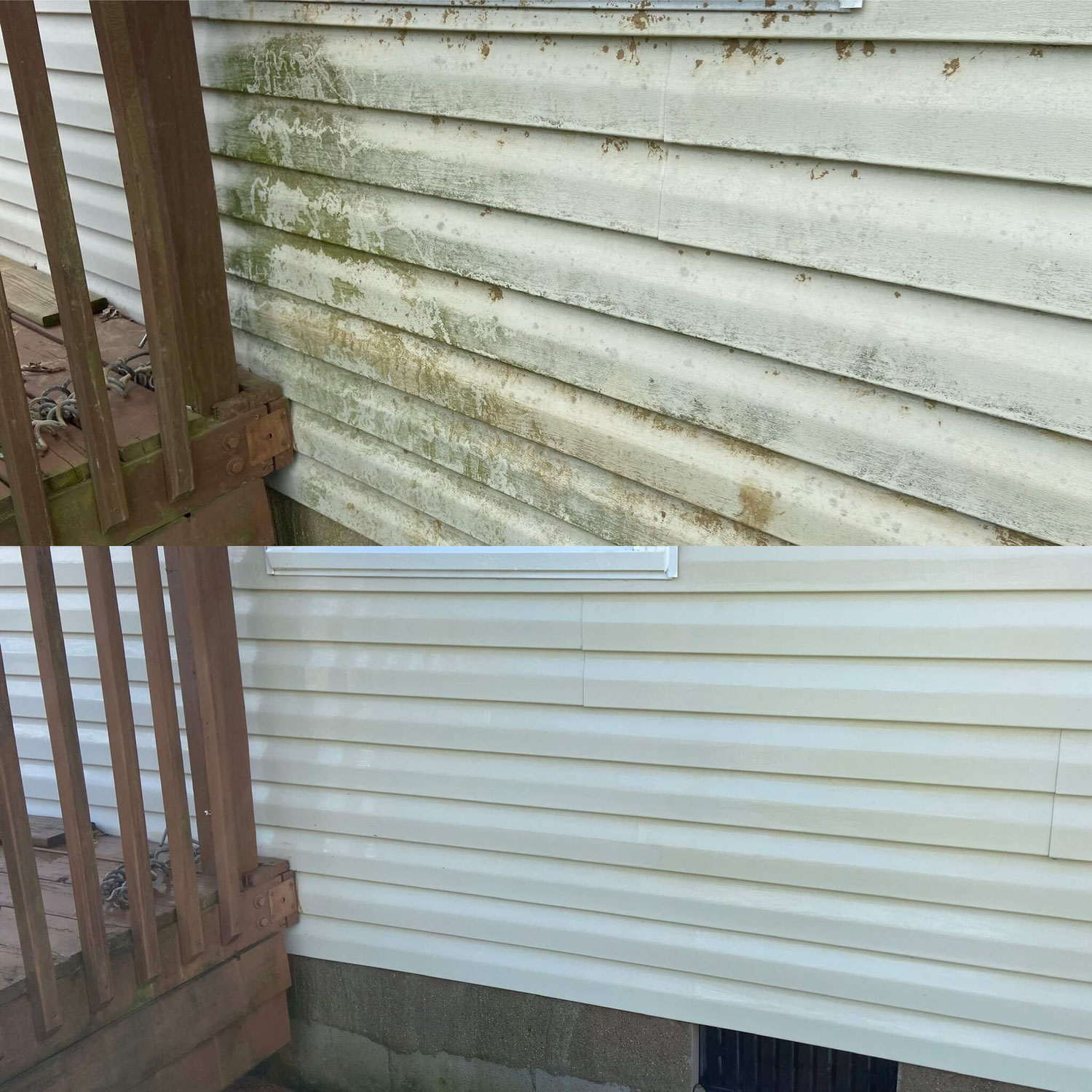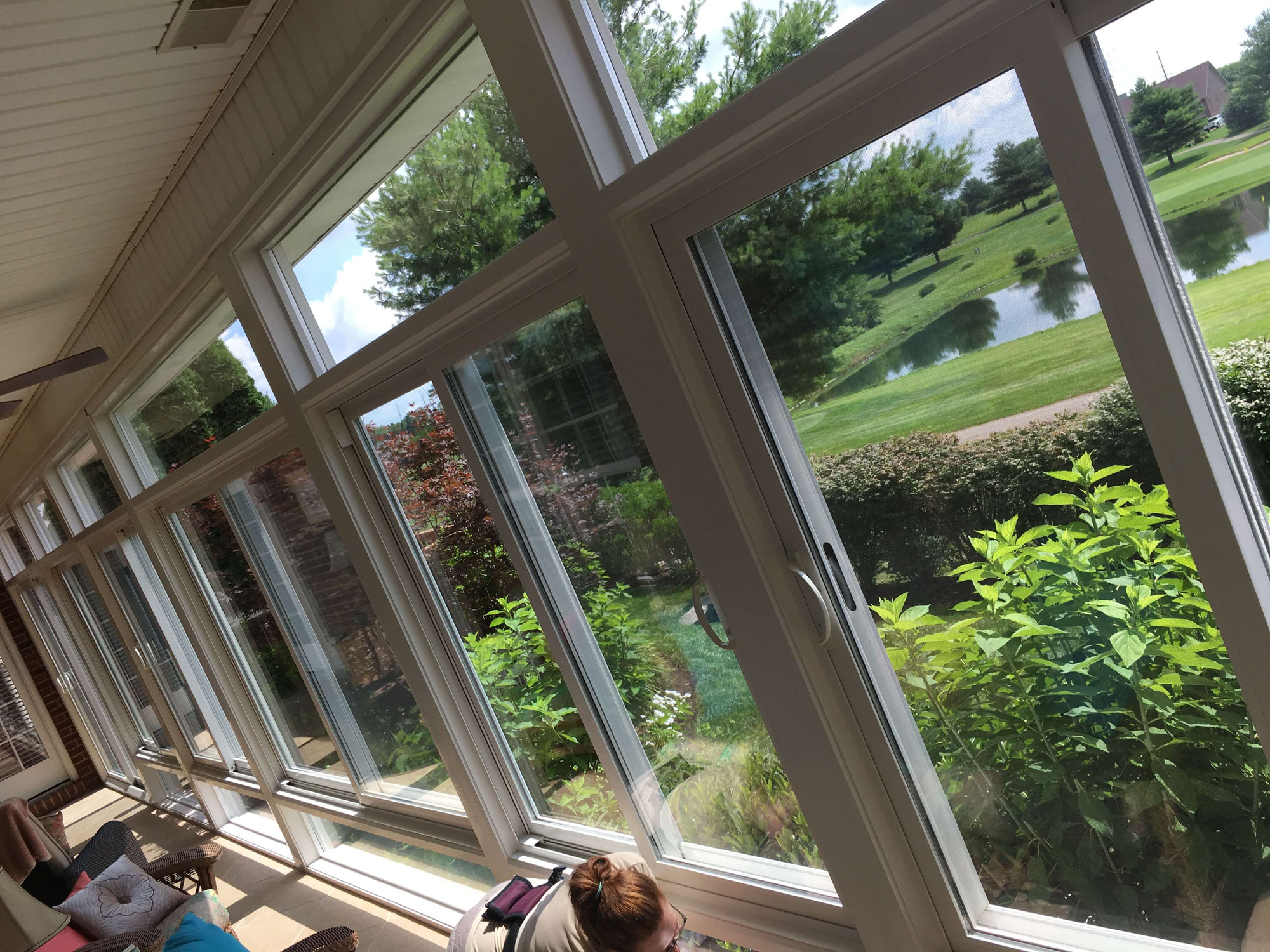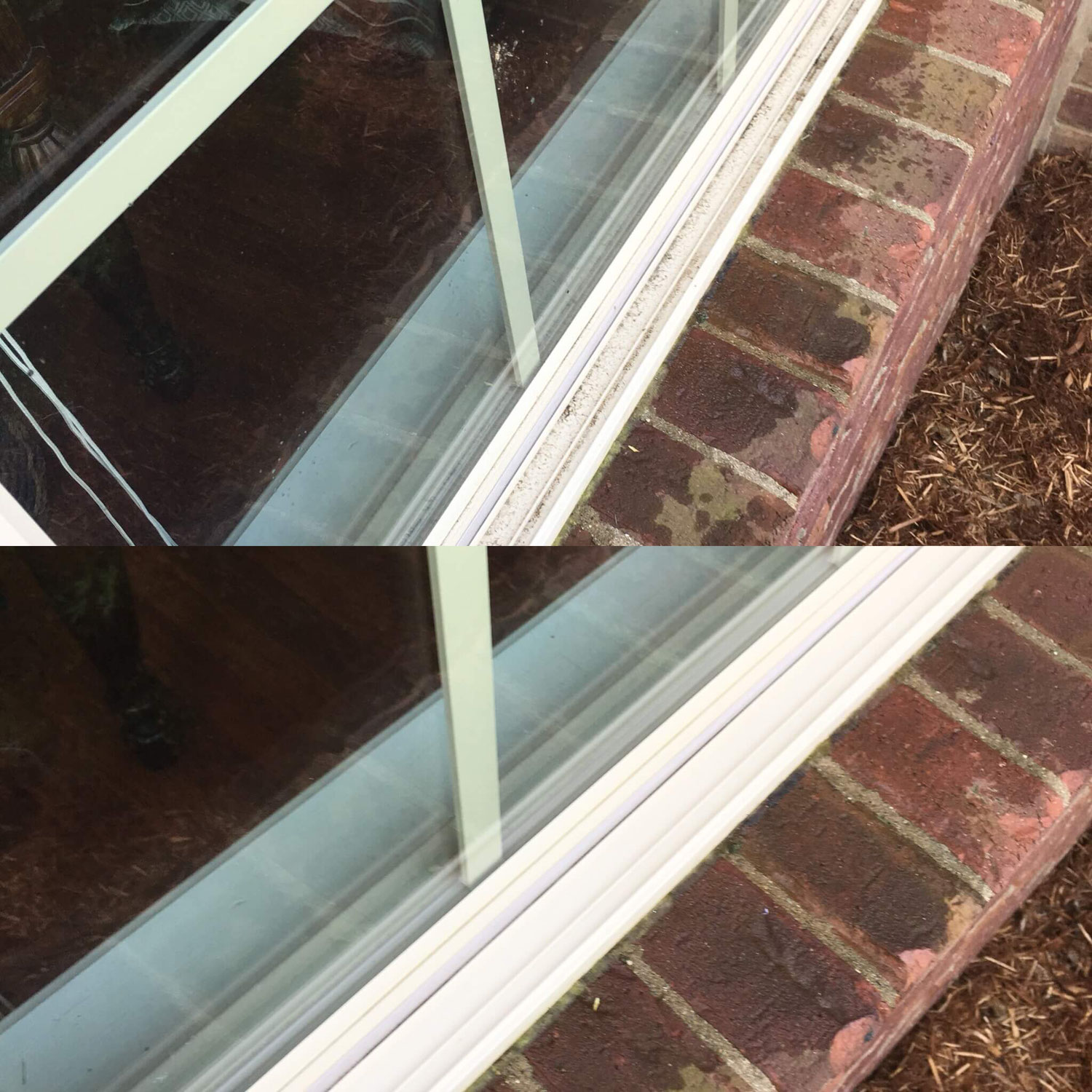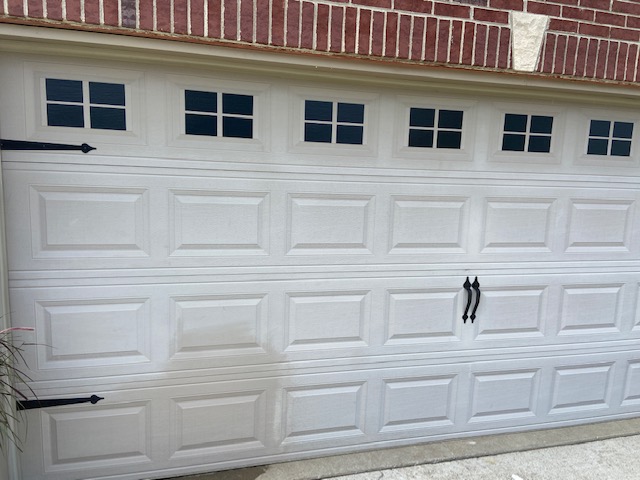05. April 2024
Artillery fungus, or shotgun fungus, is a wood-decay fungus that likes to live on moist landscape mulch. The worst thing about this fungus is that it shoots spores up to 20 feet, which often land on siding, cars and anything else that surrounds the mulch. This fungus is hard to remove from vinyl, you can lighten it but not totally remove it. It will come off windows with a specialized stainless steel window scrapper. Best way to deal with it is, don't put mulch around your house, if possible.
04. March 2024
Pressure Washing your driveway is a good and economical way of adding curb appeal to your home. If your selling your home, it will add to the selling price of your house and you will get back a return on your investment spent on cleaning it. Or you might just want the cleanest driveway/sidewalks in your neighborhood!
21. November 2023
A lot of people don’t have their windows cleaned in the winter mostly because of the cold weather or they would rather have it done in the spring. But having them cleaned in the winter has it’s advantages, first most window cleaners are not that busy so you don’t have to wait a long time to get it scheduled. Also, they will stay cleaner longer because there is not as much dust and pollen in the air. But sometimes its just too cold to get them cleaned!
20. July 2023
Automatic sprinklers can be great for your lawn when they are properly adjusted, but can cause damage to your windows. Over time, the water that is spraying on your windows is drying and leaving hard water deposits on your window. As the months and years go by, this buildup will "fog" your windows or hardwater deposits will be very visible. The good news is it can be remedied. The deposits can be removed by specialized chemicals that are for this, also try adjusting your sprinkler head.
17. February 2023
Depending on the location you live, your siding should be cleaned every 2 to 4 years. The more humid the climate, the more often it should be washed. Why? Siding tends to have mold/algae rapidly grow on the surface, and it begins on the narrow underside of each run. One it gets started it overtakes one side, and then works its way all over the house. It can grow about anywhere on your house but most prevalent on the North side of your home. Maintenance is required to keep this algae at bay!
29. November 2022
Why natural light is good for you.
1. Decreased energy cost - More light in the less lights to turn on.
2. Better Mood - There’s a strong correlation between spending more time in natural light and improving your mood. It combats depression, increase productivity, promote calmness and reduce anxiety.
3. Improved Health - Your body needs sunlight to produce vitamin D, which boost your immune system and keeps your brain functioning at its best.
Get your windows cleaned and let the light shine!!!
22. September 2022
It's important to be sure when you have your windows cleaned that the sills or tracks get cleaned out. By doing this you allow the screen to go in and fit better and the window itself will close and latch as it suppose too. Sometimes debris will get caught in the tracks and not allow you a tight secure closing of your window. It also just looks better to have them cleaned out! At Simply Clean we do just that, cleaning of sills or tracks are part of our window cleaning process, no extra charges.
15. June 2022
The UV or sun is very hard on painted metals. Over time the top layer of paint gets "oxidized" and fades. You will feel and see on your hands a white chalky powder when you run your hands on the door. This is the failed paint on your door. You can remove it with a chemical and a soft brush. You have to be careful not to remove all the paint on the door by leaving the chemical on too long or brushing too aggressively. You can see the difference in the picture here, the dark color is cleaned. Wow!
21. January 2022
It's important to use the right chemicals for the surface you're cleaning. Otherwise you can damage the surface or just not remove the soil off the surface. Be careful too when mixing chemicals, as some can produce a reaction and create off gassing which can be dangerous. Here at Simply Clean we use a line of specialized professional products made for the industry we are in, also these chemicals provide awesome and safe results!

